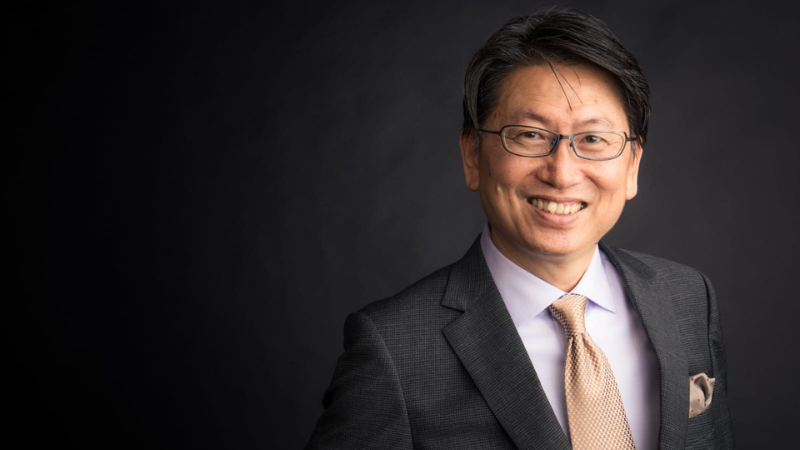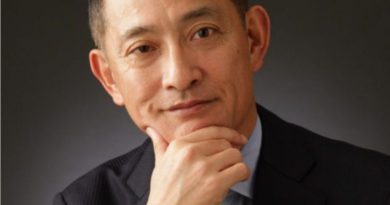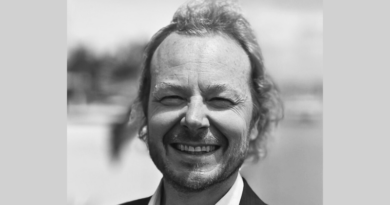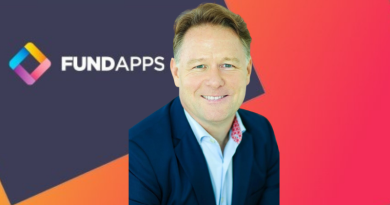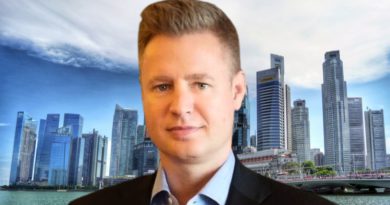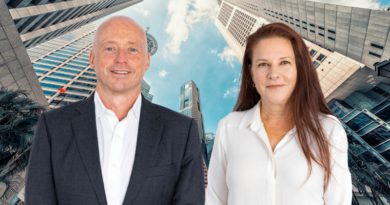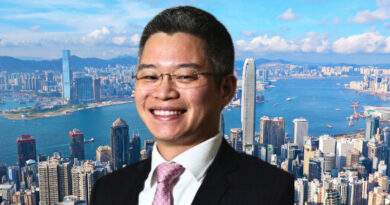Soon Hock Chua: “Markets will be volatile and highly uncertain”
A conversation with Asia Genesis Founder and CIO Soon Hock Chua about his comeback as an Asian-focused global macro hedge fund manager. “I hope to provide a platform to aspiring Singaporean traders and contribute to the Singapore hedge fund scene.”
Soon Hock Chua founded Asia Genesis Asset Management, a Singapore-based global macro hedge fund manager, in 1999. He served as CIO of its flagship Japan Macro Fund, an Asia-focused global macro fund, between 2000 and 2009. He relaunched the business in 2020 and once again serves as CIO of the flagship global macro strategy. The Hedge Funds Club’s Stefan Nilsson decided to have a chat with Soon Hock to find out more.
You successfully managed Asia Genesis’ first fund, the Japan Macro Fund, from 2000 until 2009. Why did you choose to shut down the fund at that point?
We closed our previous flagship Japan Macro Fund in September 2009, at the high, with an average net return of 18.7% per annum over a ten-year period. It ended with a sweet after-taste for investors, which is a belief that is dear to me. The main reasons for my decision to close the fund and return all monies to investors, before taking a long sabbatical, was to focus on health, family and charity work. After the fund closed, I continued to trade in my personal capacity and trained some traders, while pursuing other interests. I led a highly active life, including outreach work in various Asian nations, Japan after the 2011 tsunami, research in cancer treatments, urban farming, skiing and singing. Throughout the years, I remained well connected to the markets and considered a return in 2015 but the plan was delayed due to my late wife’s poor health. In 2020, when things were more stabilised, I re-launched Asia Genesis Macro Fund, together with some of my ex-colleagues and hedge fund industry veterans Ronnie Wu and James Loh, who are non-executive directors of the firm.
After taking a break from fund management, you relaunched Asia Genesis Asset Management. What made you relaunch the fund business?
I am still passionate and skilful in trading. After closing the previous fund, I continued to manage my own monies and did well. With the relaunch, I hope to provide a platform to aspiring Singaporean traders and contribute to the Singapore hedge fund scene. Many of my relatives and friends were adversely affected by risky financial products in a leveraged, near zero-rate environment. I want to offer a transparent, safer alternative with lower downside volatility and steady returns. As of 11th August 2022, we are up +1.69% MTD and +9.81% YTD net. The current market’s uncertain phase and underlying contradictions favour a flexible, nimble trading approach and are not conducive for most funds. The nature and structure of markets are undergoing major unexpected changes. Markets will be volatile and highly uncertain. High inflation relative to interest rates, huge outstanding money supply created, supply chain issues from the trade wars and financial sanctions, serious national domestic social, economic contradictions, inequality between 0.1% super rich and the rest, a divisive world caused by the geopolitics of the USA against a rising China, climate change effects, etc, make policy-making and cooperation necessary but the realities are otherwise. The world is facing many fundamental and even existential issues. I hope to use the money earned positively to contribute in an increasingly difficult world to the poor, sick and distressed.
Your first fund was a Japan-focused macro fund. When you restarted your fund business the strategy evolved into a wider Asian macro fund. What was behind your decision to broaden the strategy’s scope?
The Japan Macro Fund’s name was a misnomer – it was launched in March 2000 with a focus on Japanese products only for the first year. Back then, given my extensive experience in Japanese markets, I was nicknamed Mr JGB and Mr Nikkei. But the reality was I was caught flat-footed almost immediately after I launched the fund when the tech bubble burst in March 2000 with a highly adverse Nikkei re-shuffle. I lost heavily in my first year in 2000. I had no choice but to review, acknowledge mistakes, learned and took corrective measures to survive and grow. The Japan Macro Fund evolved into a more diversified Asian-focused global macro fund from the second year onwards and transformed into a steady uncorrelated return fund with low downside volatility from 2003. We did not change the fund name as many of our investors were already familiar with it. Since then, we steadfastly focused on giving our investors what they want, i.e., strong, steady returns with low downside deviation. I am blessed. Our current fund is similarly a global macro fund that trades only in liquid, transparent exchange-traded products such as the Hang Seng, Nikkei, S&P, Nasdaq, Nifty, US T-bonds, JGB and major FX currencies. We focus on products that we know best. This allows us to have a knowledge, skill and experience edge, take advantage of opportunities in the various markets and be more consistent in our ability to generate steady positive returns.
You run your asset management business from Singapore. Was Singapore the obvious choice of location for you already when you ran the Japan strategy?
Singapore is where we live, it’s our home. It is efficient, has sound governance and a decent talent pool, reducing any unnecessary risk to the business.
You have mentioned market psychology as an area of expertise. What do you mean by market psychology and how do you incorporate that into your investment strategy?
It takes an experienced and reflective trader to be able to understand market movements and the mood behind it. I always share with my traders that they need to “know” the market, just like how you understand a close family member or a friend deeply. If you “know” your spouse well, you will be able to detect subtle and initial changes from her body language. And you will know what to expect for the rest of the day. Each market has its own body language. Especially important is when price movements deviate from what you expect or other market players’ expectations. A highly skilful profitable trader has a strong attentive sense of market psychology and its changing mood. I have market views that broadly guide my overall positions. But on a short-term basis, we need to factor in market psychology and be sensitive to it, and trade flexibly to ensure that at any short-term inflexion point we are not caught, our size risk is well managed and our returns are closer to optimal.
This year we have seen many major macro events – not just geopolitical ones but also a continued global pandemic. What is the single biggest threat in the world we need to keep an eye on in the coming months?
The single biggest threat to the world and markets now is the US-West geopolitical developments against China. It is steadily deteriorating, probably moving from Cold War to Hot War if the current trend persists. The world’s two largest economies must be cooperative and not at war, without which how can an even bigger existential risk of major climate change be addressed? There is a kind of madness pervading among many Western politicians and media today. If this is not reversed the world will face a bleak future. An ongoing war between Ukraine and Russia will have continued detrimental effects and may gradually develop into bloc politics. The macro risks of supply-chain disruption from escalating war and weaponised sanctions are increasing globally. The USA trade war with China which disrupted supply chains of sanctioned goods, especially semiconductor chips, has now moved further to Russia which is not only disrupting oil and gas supply but essentials like wheat and fertiliser for planting. Europe and many poorer nations will face very high energy costs and starvation if these sanctions continue into winter. The human tragedy will mount. The end of autumn and early winter will see a spike in energy demand and a shortage of food supplies. These negative developments will lead to uncertain markets. The tension between the USA and China in the Taiwan Strait, the South/East China Sea and the Korean Peninsula will be potential flashpoints. In East Asia, we are likely moving into a cycle of occasional heated “rumour of war” phase and then quiet periods and then likely a disastrous major war if this trend continues. The most recent example is the trigger effects of US House Speaker Pelosi’s provocative visit to Taiwan. The adverse “action and reaction” cycle needs to stop. The nature and structure of markets are going to be impacted by major and unexpected changes from political, social and military developments.
What is your macroeconomic outlook at the moment and do you have any specific market views you would like to share?
I expect a multi-year range bearish market with occasional sharp rallies, primarily driven by the permanency of high inflation. US Consumer Price Index (CPI) yearly growth is currently at 8.5% and may fall to around 6% but will likely be above 4% for the next few years. Strategically, the US needs to reduce liquidity in the system that the Fed pumped in excessively during Covid. This liquidity allows for bouts of bull squeezes during bear markets but results in high inflation. The US will not be able to hike rates above the inflation rate as they are highly leveraged in debt. The US may move away from general sanctions as the impact has boomeranged back to affect their own supply chain, ultimately causing higher inflation. Instead, the US will move to sanction specific strong and competitive Chinese companies in its Cold War efforts. This will increase costs for US consumers and reduce earnings for US MNCs that need Chinese suppliers. With the above, we can expect a bear-range market going forward. If interest rates are hiked to above 4%, it is likely to crack the US economy and lead to a recession. Earning of companies will drop sharply, resulting in a global slowdown. This trend will be more prolonged than what we experienced in the past 40 years when interest rates were trending lower.
Let’s talk about your team and company culture. When you relaunched Asia Genesis, several of your old colleagues rejoined Asia Genesis. That indicates that Asia Genesis is a good place to work. What is the company culture like?
Many of my former colleagues who have worked together with me, share the same values and principles, which is to put investor interests foremost, integrity and transparency in our conduct and work together in harmony with minimal to no office politics. Besides our non-executive directors Ronnie Wu and James Loh, our CEO Chay Chang, COO Phyllis Phee and Head of Investor Relations Jessica Quek were amongst the re-joiners. We have come together again with a common goal and commitment to set the highest possible ethical standards in the hedge fund industry, to provide world-class products to our investors while enjoying our work. We believe in offering opportunities and nurturing young talents. So far, we have a good mix of experienced and young, it is conducive to dynamism. We lead by example. Soon, the best among the many traders I had trained will be joining us. It is satisfying. Even more satisfying is to see the honourable become skilful and flourish.

